I invented the internet – I worry my creation has given way to the likes of QAnon
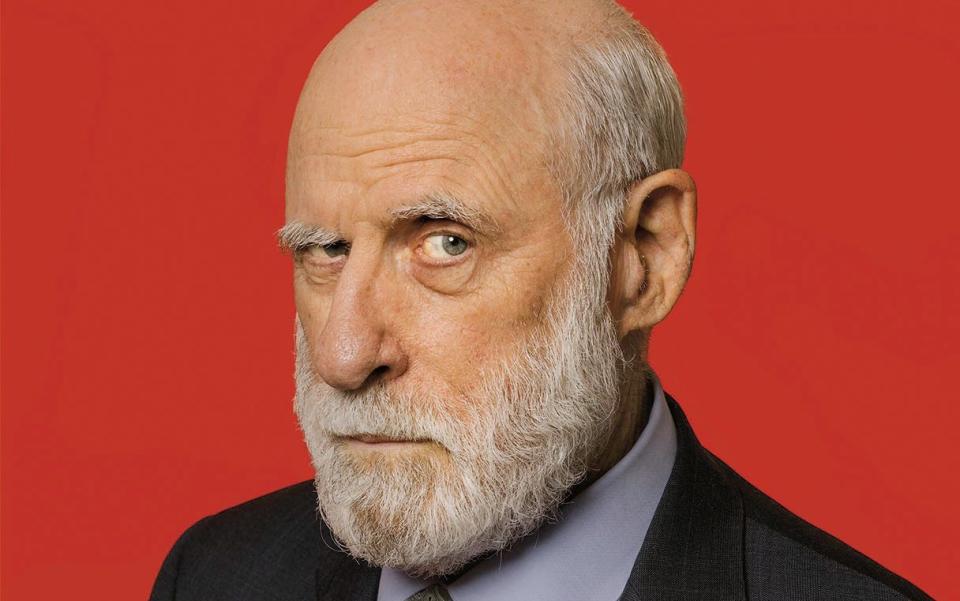
Most of us, if we had helped to invent something that made a decent amount of money – let alone changed the world – would expect to receive a decent proportion of the profits ourselves, if not the lion’s share.
Vinton Cerf, though, is not most people. He is the man most frequently referred to as ‘the father of the internet’, though he will modestly and fastidiously correct anyone using the term in his presence. He is, in fact, the co-inventor of one of the key protocols on which the internet has relied for 50 years, and one of a handful of the pioneers who have worked on it from its earliest days.
Eight of the world’s 10 richest men owe a significant portion of their fortunes – collectively more than one trillion dollars – to Cerf’s work, but Cerf himself is not a billionaire. In fact, for the last 18 years the 80-year-old has worked for Google, a company founded by two of those eight men, in the role of ‘chief internet evangelist’, for which he is uniquely qualified.
It is 50 years since Cerf and Bob Kahn invented the TCP/IP protocol upon which the internet relies, and 25 years this month since Google, Cerf’s employer, was founded – and revolutionised the internet for the masses.
Sitting in his Google office in Reston, Virginia, in a three-piece suit, with matching pocket square – Cerf is known for being immaculately turned out, predating the hoodie aesthetic associated with the tech world by several decades – he shares that evangelistic perspective, though 50 years on it’s tinged with concerns for the future.
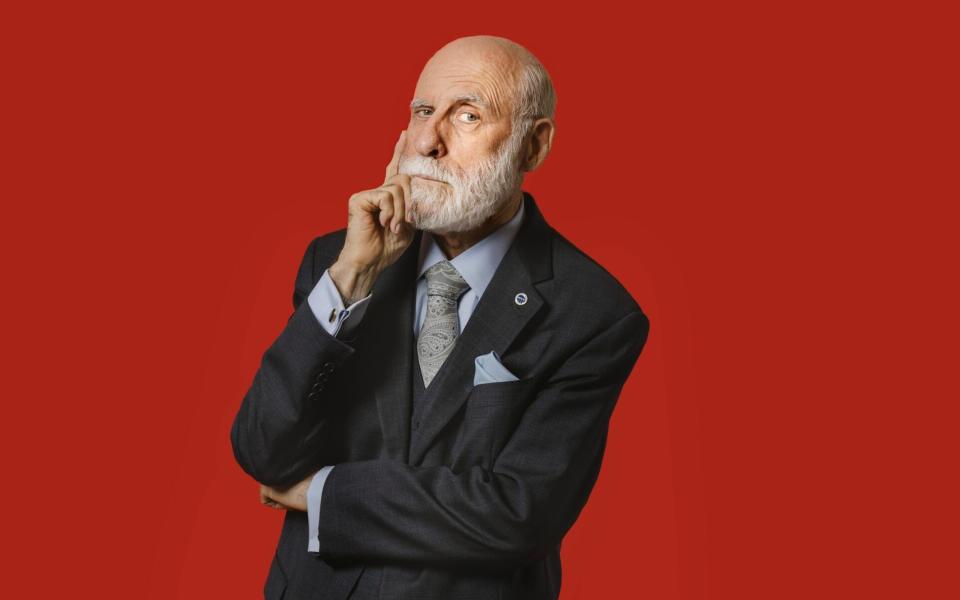
But one thing Cerf is quite keen to stress is that for the first several decades after what became the internet was launched, it was not remotely a big deal.
The network that became the internet started out with fairly modest goals. In the late 1960s, US universities regularly asked the Department of Defense (DoD) for money for new computers, to help them with computer science and artificial intelligence. But computers, then the size of a room, were incredibly expensive and the DoD wanted to save some cash – while also looking for a low-stakes way to test communications technology that might help with command and control of nuclear weapons.
Then the department’s blue-sky research agency, Defense Advanced Research Projects Agency (Darpa), found a way to kill two birds with one stone.
‘The computer science departments were asking Darpa, “Please buy us another world-class computer every year, so we can keep doing worldwide research,”’ Cerf recalls. ‘And Darpa is saying: “We can’t afford to do that – they’re million-dollar machines!”
‘So Darpa said, “We’re going to build a network and you can share.” And everybody hated that. But Darpa said, “We’re building the network anyway.”’
The first connection on what became the internet was activated in 1969, entirely without fanfare – a few postgraduate students in a room in the University of California, Los Angeles, were trying to test the new connection by logging in to a computer remotely. The intention had been to send the message ‘login’. In practice, the ‘l’ sent with no problems, and so did the ‘o’ – but when they tried to send the ‘g’, it promptly crashed the remote computer, meaning the first effort online message sent was a strangely apt ‘lo’.
Cerf had been working on the networking project from that earliest period, while studying for a PhD, though he wasn’t present for that very first test. Despite the reluctance of several academics to network their computers, it quickly proved popular and more computers were added.
Cerf moved from academia to work directly for Darpa. But through the 1970s and 1980s, even as most of the technologies that made the modern internet were developed, it remained almost completely unknown to the public.
That is not to say Cerf’s family were unknowns in the 1980s – it’s just that he was not the celebrity among them. In 1979, Vint was living with his wife, Sigrid, and their two young children in suburban Annandale, Virginia (a common place for DoD, CIA and other staffers to live).
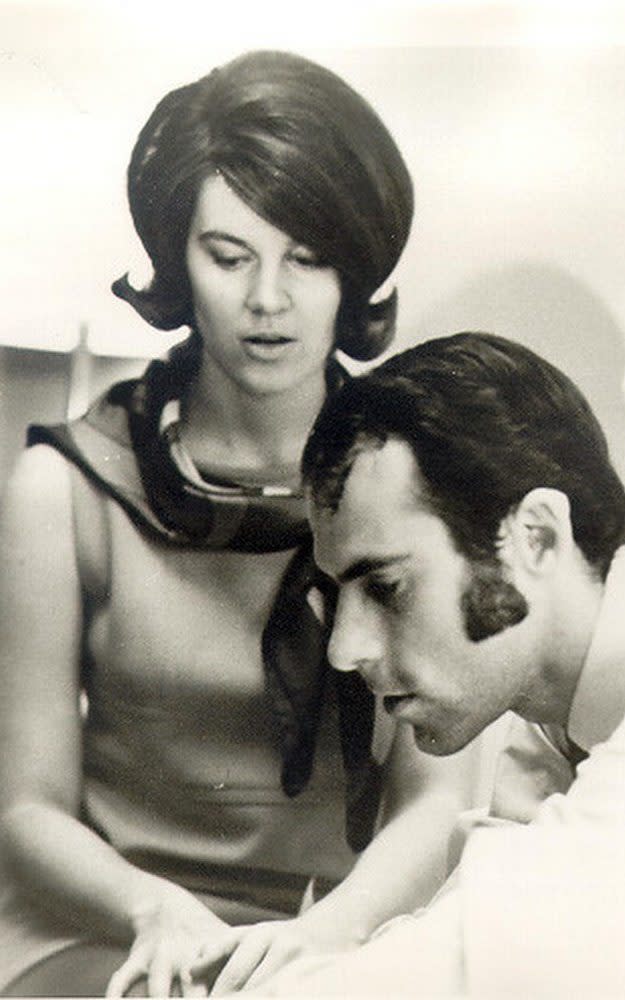
Sigrid had been shocked by a Time magazine cover showing a starving one-year-old child in Cambodia, and was moved to take what action she could while trying to look after two very young children. She started baking bread – first a Swedish rye bread from a family recipe, and then all sorts of other varieties.
She sold these to her neighbours, then to others from her church, and donated the proceeds to help children in Cambodia. The whole enterprise quickly escalated – neighbours would help with the garden or offer up storage space so she could bake more. Over eight years, Cerf estimates his wife baked at least 50,000 loaves for charity, an almost continuous pursuit every winter in their home kitchen.
‘For about three years, our best customer was the CIA,’ Cerf recalls. Someone from the CIA would get in touch and say they’d like to buy a certain amount of bread, and he would ask how they’d like it to be delivered.
‘They’d say, “Well, just leave it in the garage on the hood of the car,”’ he recalls. ‘So, how are you going to pay for this?’ he’d ask. They would simply ‘leave a sack of money’ in his garage. ‘All I can think of is, it must be a clandestine branch… but that was fine.’
The story – minus the details about the CIA – was picked up by national media throughout the 1980s, but if Vint was mentioned, it would be only as the most passing of references. A 1982 Washington Post profile of Sigrid mentions ‘her computer-scientist husband, Vint’, before he offers an admiring quote about his wife.
That admiration, with a little recollection of a competitive spirit, lives on to this day. As the internet started to catch on in the 1990s, Vint finally got a one-page profile of himself and his invention in People magazine – only to see Sigrid net herself six whole pages a few years later, long after she had stopped baking. ‘She doesn’t even have a PR department,’ he grouses. ‘Small sore spot in our relationship.’
His avuncular tone returns very quickly, though: ‘People ask me, “Will you do a biography?” And I say, “Yes – my wife’s.” Her story is much more interesting.’
Here, Cerf may be doing himself a disservice; while his wife’s charity work drew attention in the 1970s and 1980s, there was dramatic work underway on the underpinnings of the internet.
To the surprise of the academics who had only signed up to the project because Darpa had strong-armed them into it, the departments concerned quickly found that they liked networking.
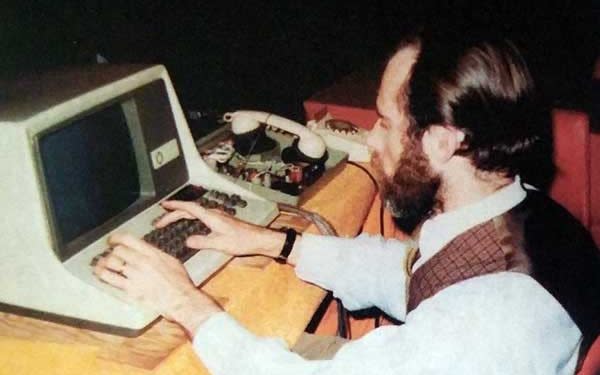
Darpa had insisted the different labs pool their findings and research as well as their computing power, and this seemed to launch a chain reaction that no one had quite predicted.
‘Everybody was sharing their results, their software, getting access to their computers, and it accelerated the work dramatically,’ Cerf says. ‘And then email showed up in 1971, and everybody says, “Wow, that’s cool. Now I don’t have to be awake at the same time as the other guy in order to collaborate.”’
Time zones became less of an issue – if you wanted to add a European university to the network, you didn’t need to be awake at the same time as their researchers, because you could leave an electronic message rather than speak on the phone. So more computers across more countries were added to the early internet.
By 1972, there was a rudimentary version of social networking in existence – distribution lists. These lists roughly resembled modern online bulletin boards, with different topics at their core. ‘The first ones I joined were “sci-fi lovers” and “yummy”,’ Cerf recalls – the latter being a board on which restaurant recommendations were exchanged. ‘So we had an inkling of the social component [even back then],’ he notes.
Cerf raises these examples to stress that several of the people involved in the early internet had some clue of its potential long before it ever took off – and to note that most of the ways we use it today had emerged organically in its very early days when its users numbered in the dozens or hundreds rather than the billions.
His own major contribution (with Bob Kahn), TCP/IP, was formalised in 1973 and had two components – TCP stands for Transmission Control Protocol, and creates a standard for how data flows across the internet.
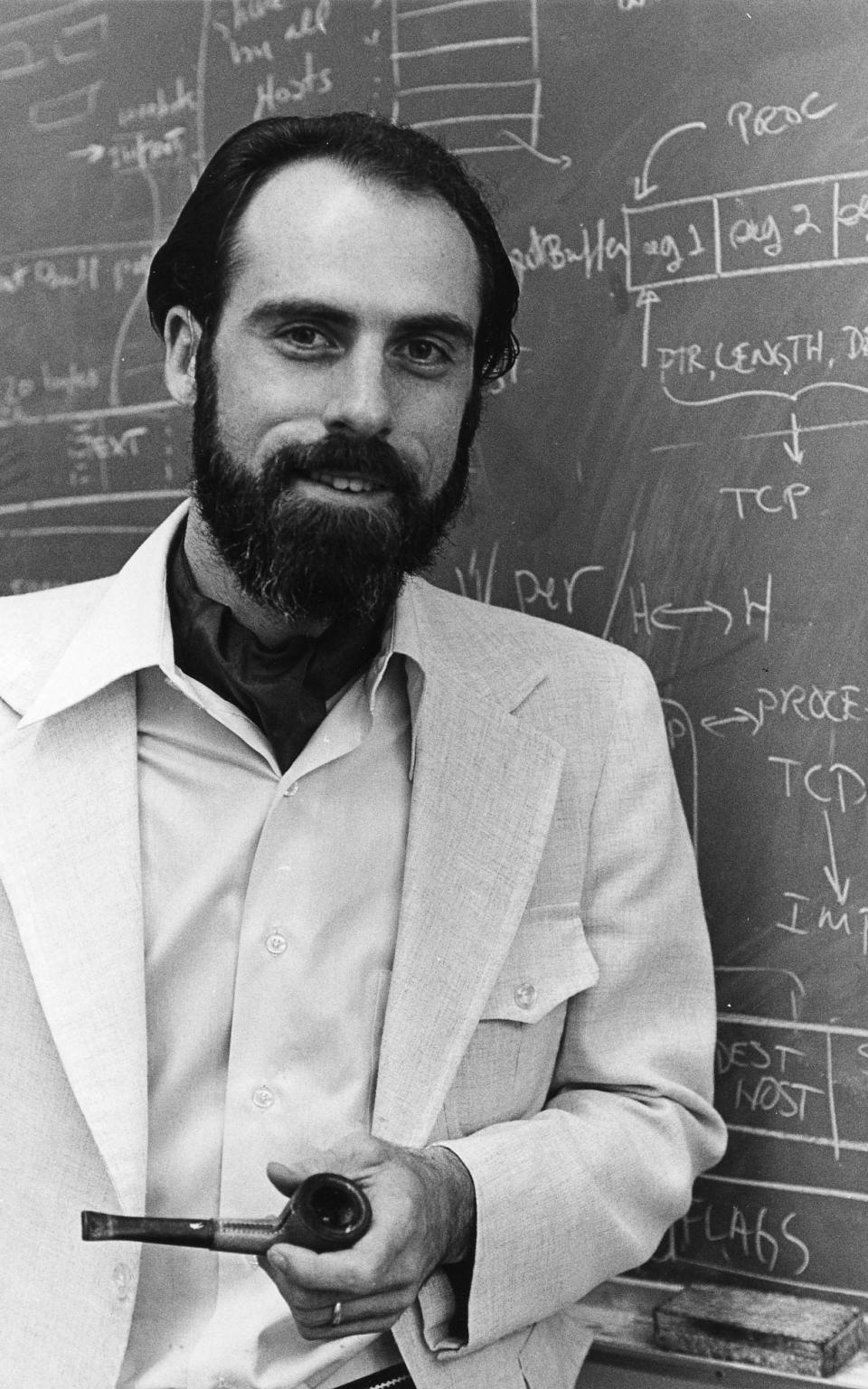
IP, short for Internet Protocol, might be more familiar to some users, as it is the addressing system of the internet – both TCP and IP are still in use today, with the latter being one of Cerf’s regrets, albeit quite a nerdy one. The internet still runs on version four of IP, but this is limited to four billion devices – and we are bumping up against that limit now.
The internet is trying to shift to a new version that will allow trillions of devices, but Cerf had tried to persuade his colleagues to future-proof it earlier – although, he laments, it is very hard to claim four billion isn’t enough when the network only has a few hundred users.
The speed at which the internet went from thousands of users, to millions, to billions is breathtaking. The breakthrough came in the early 1990s, as the world wide web – which made the magazine-style web pages we take for granted today possible – caught on, thanks to its invention by British computer scientist Tim Berners-Lee, who made it freely available.
In 1986, there were about 1,000 devices connected to the internet. By 1990, about 2.5 million people had some kind of access. By 1997, it had surpassed 100 million, and by 2000 more than 400 million people were online. It hit a billion in 2005, and today more than half the planet is on the internet.
Cerf played a second, lesser-known role in enabling this boom by persuading the Federal Networking Council to let private companies make use of the network, where they had previously been barred. He was working for an email provider, MCI Mail, at the time, and it wanted to offer its services more widely.
‘I made a proposal to the Federal Networking Council, which was in charge of policy,’ he remembers. ‘And basically, I said, “Would it be OK if I tried to connect MCI on to the internet just to see if it works, since I’ve designed both of them?”’
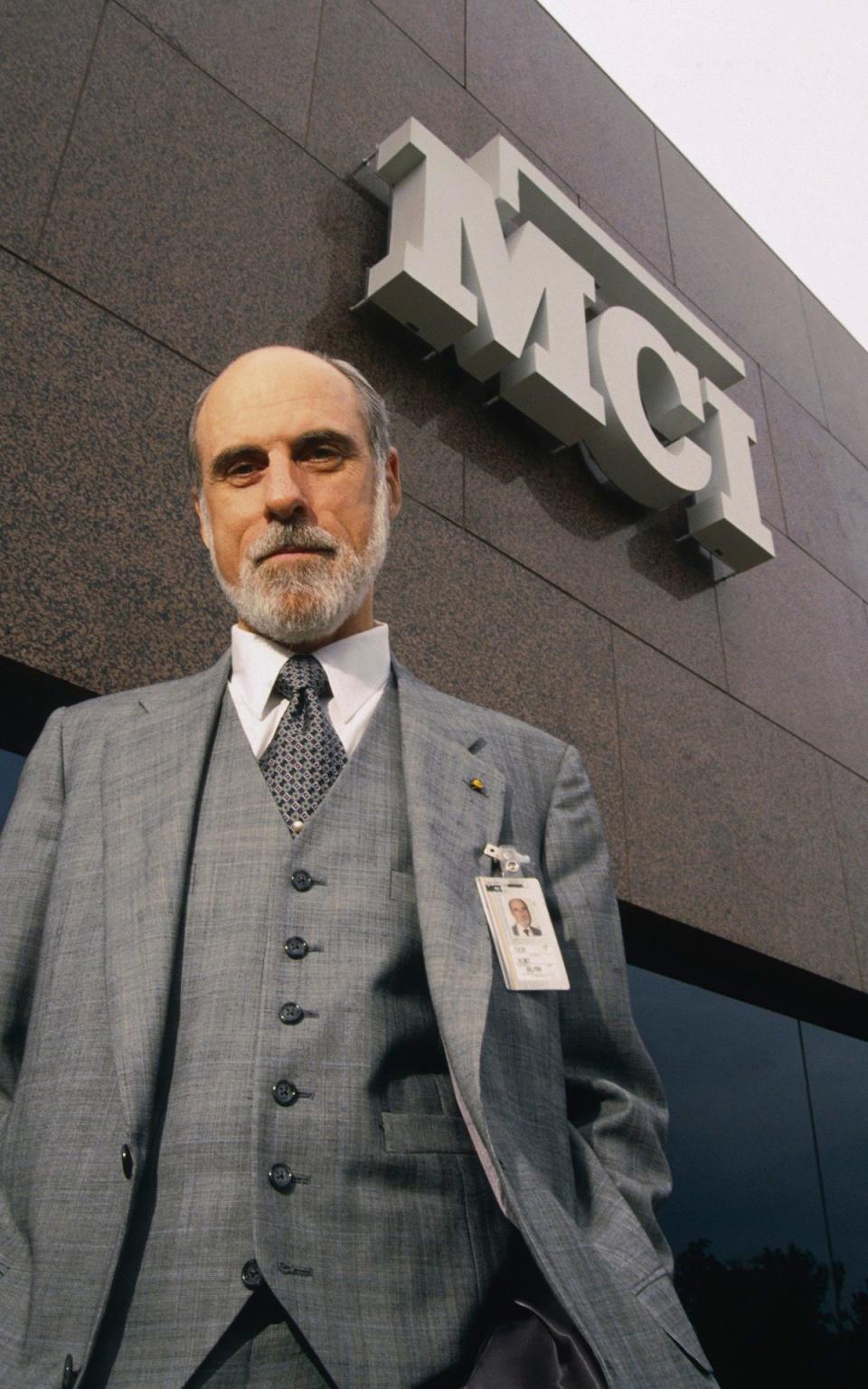
To say the rest is history would be an understatement. Elon Musk, currently the world’s richest man, made the money to buy Tesla and found SpaceX from the online payments company PayPal. Jeff Bezos, at number three, relied on the internet for Amazon, while fourth place Larry Ellison’s company Oracle sells servers that power the internet.
Microsoft founder Bill Gates is the sixth-richest man, while its early executive Steve Ballmer is in 10th place. Google’s founders Larry Page and Sergey Brin (Cerf’s employers) are in seventh and eighth spots, while Meta/Facebook founder Mark Zuckerberg is ninth. Of the two remaining, one is mega investor Warren Buffet, who made quite a few of his billions from online businesses – only one of the world’s 10 richest men (LVMH’s CEO Bernard Arnault) can be said to be truly independent of the network Cerf co-invented. And yet the man himself seems to genuinely harbour no regrets that he is not among their number.
‘The reason I’m not is that I made a deliberate choice not to try to commercialise my own personal interest,’ he explains. ‘And the reason for that will sound maybe stupid, but I figured that if I did that, I wouldn’t be able to convince people to use the internet technology, because it would sound self-serving.’
Of course, others who popularised the internet raked it in – not least Google’s founders, who transformed how the internet operated day-to-day. Before Google, search engines had tried to show relevant results by looking at how many times the search term appeared on a page – a system that was very easy to game, and not very effective. Google had the insight that links were important: if lots of people linked to a particular site, it was probably more valuable than a site to which no one linked. The simple insight proved revolutionary.
‘Larry and Sergey had the best idea. They noticed, first of all, that you could download an index of the whole world wide web,’ Cerf says. ‘And the second thing is that they figured out the pages that were pointed out by a lot of other pages might be more important than the ones that didn’t have anybody pointing to it.’
Cerf notes that this is now just one of dozens of metrics Google uses to assess the relevance and usefulness of a particular page – but he does share in the popular worry that artificial intelligence might hamper the future of an open internet in which accurate information is easy to find.
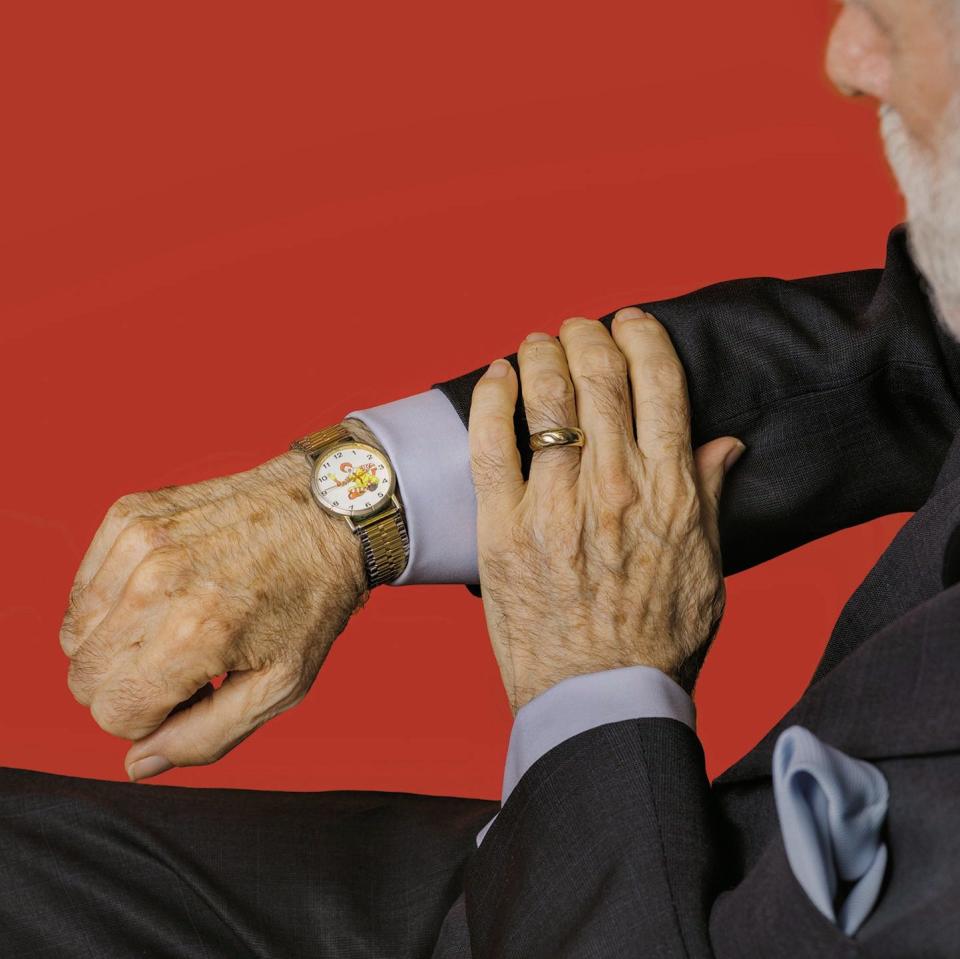
In pursuit of this interview we learnt to our cost that Google is anything but infallible. The search giant’s mission remains to ‘organise the world’s information and make it universally accessible and useful’, but it directed me and the Telegraph Magazine photographer to an entirely different office, leading to a mad 18-mile scramble across Washington, DC and Virginia.
That, of course, is small beer. The potential for mishaps online is far greater – especially given the habit of modern so-called ‘large language models’ of AI software such as ChatGPT or Google’s own Bard to ‘hallucinate’, or to invent things that look like facts, but which aren’t connected to reality.
‘These large language models are fascinating. But depending on what you ask them to do they hallucinate,’ he says. ‘And I find that fascinating… so if your bio and my bio are on the same web page, that has to be encoded – and oversimplifying, it could pluck something from your bio and associate it with me, and something from my bio could associate with you.’
Many of those mix-ups would be largely harmless, if still a problem for a company trying to organise the world’s information – but as anyone who shares a name with a serious criminal knows, they can be anything but harmless.
Cerf hopes that AI can be taught ‘context’, meaning it can learn to attach specific information or facts to specific targets, so it wouldn’t confuse his biography with mine just because they appear on the same conference website, for example. Just one problem, though: ‘I don’t have a clue about how to do that,’ he says.
He’s optimistic, though, after a fashion. ‘I still believe that we will eventually figure out how to discipline the large language models,’ he says, before suddenly breaking out into an impression of Freud, German accent and all. ‘I feel like Sigmund Freud, “That vat we have here is ze artificial id and ze artificial ego. Vot ve are missing now is ze artificial super ego that controls za impulses of the artificial id and ze artificial ego.”’
Artificial intelligence and the ‘context collapse’ it creates are far from Cerf’s only concerns about the future of the network he helped create, which now shapes the world’s economy and is a central feature of global politics. It’s certainly something he’s been confronted by.
‘I remember having lunch once with Henry Kissinger up in New York, probably at least a decade ago,’ he recalls. ‘Sitting down for lunch, Kissinger said, “I hate the internet.” So maybe lunch is over.
‘“Why is that, Dr Kissinger?” [I asked]. And he said, “People on the internet expect two-paragraph answers, and I write 700-page books.”’
Cerf wants people to get two-paragraph answers when they need them, but still be able to absorb the 700-page version of events. And just as he is still proud the internet elevates voices that wouldn’t otherwise be heard, he worries it elevates voices that shouldn’t be heard – ‘think about QAnon as an example’.
When I ask Cerf – such a notorious optimist and idealist that he has held the job of chief internet evangelist for nearly two decades – about what gives him hope for the future of the online world, I am surprised to be met mostly by a list of concerns.
He worries about preserving digital evidence to hold wrong-doers accountable, and about how the internet is governed more generally. He is concerned about countries restricting internet access or even contemplating cutting themselves off from the global internet. He’s worried by the use – usually by dictators – of internet shutdowns to cut off information in times of crisis.
Like many 50-somethings, the internet is not without its problems. But Cerf thinks it hasn’t entirely lost its magic.
‘In spite of all that, I still am very optimistic about this system,’ he concludes. ‘Look, it’s lasted for 40 years in operation, it’s expanded by a factor of 10 million… It’s going off the planet – I’m still very excited about that.’

 Yahoo Finance
Yahoo Finance 